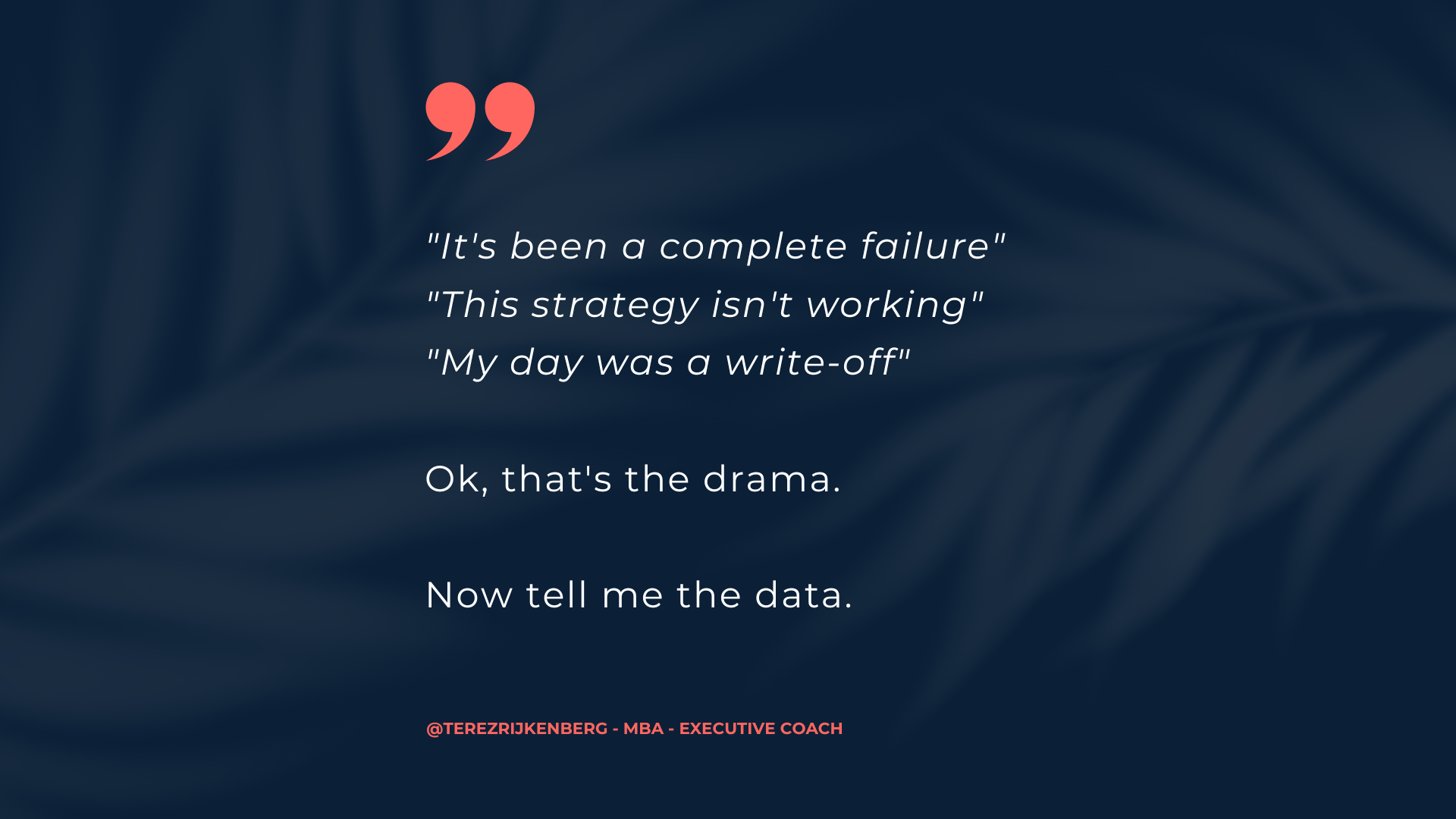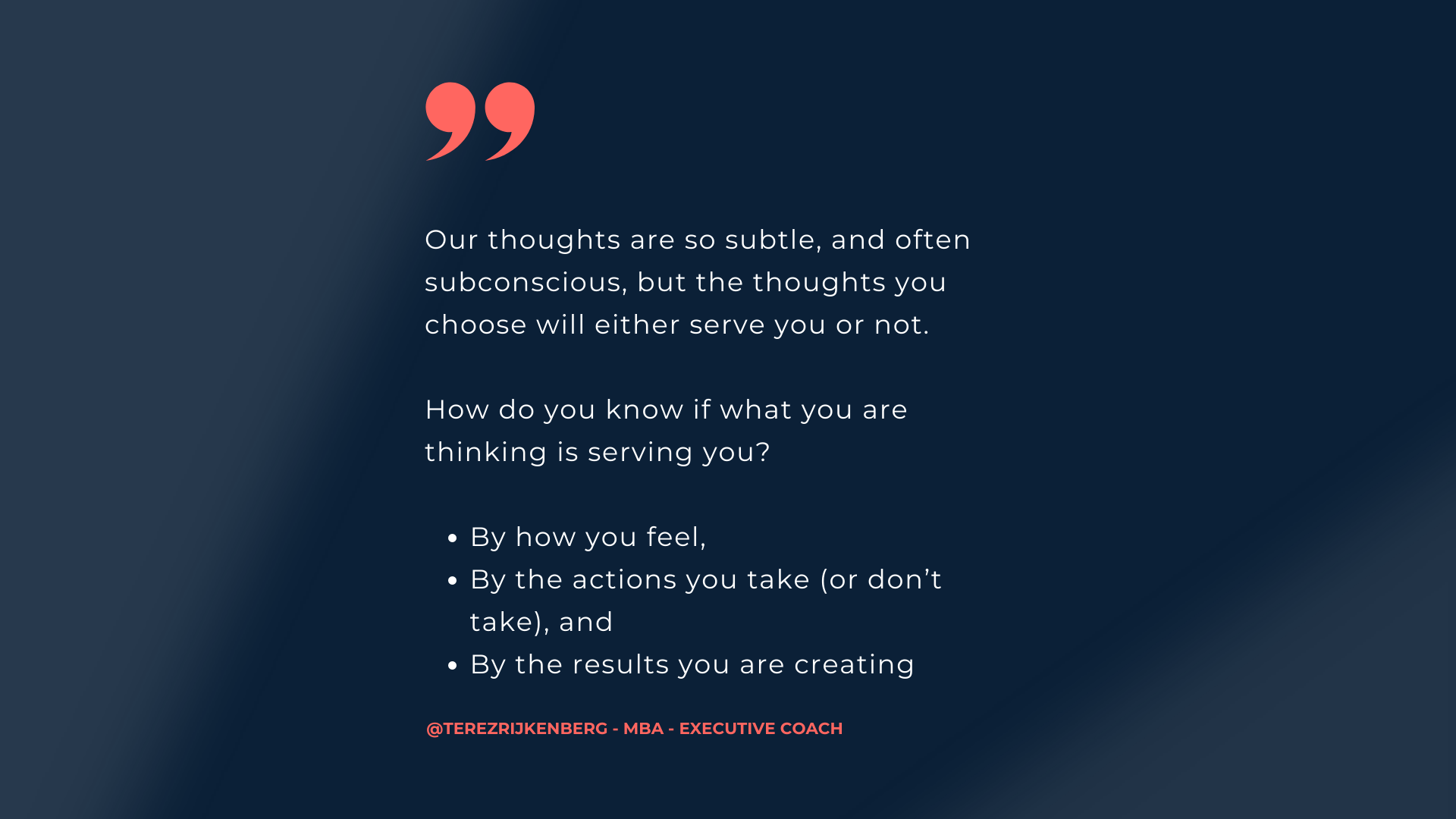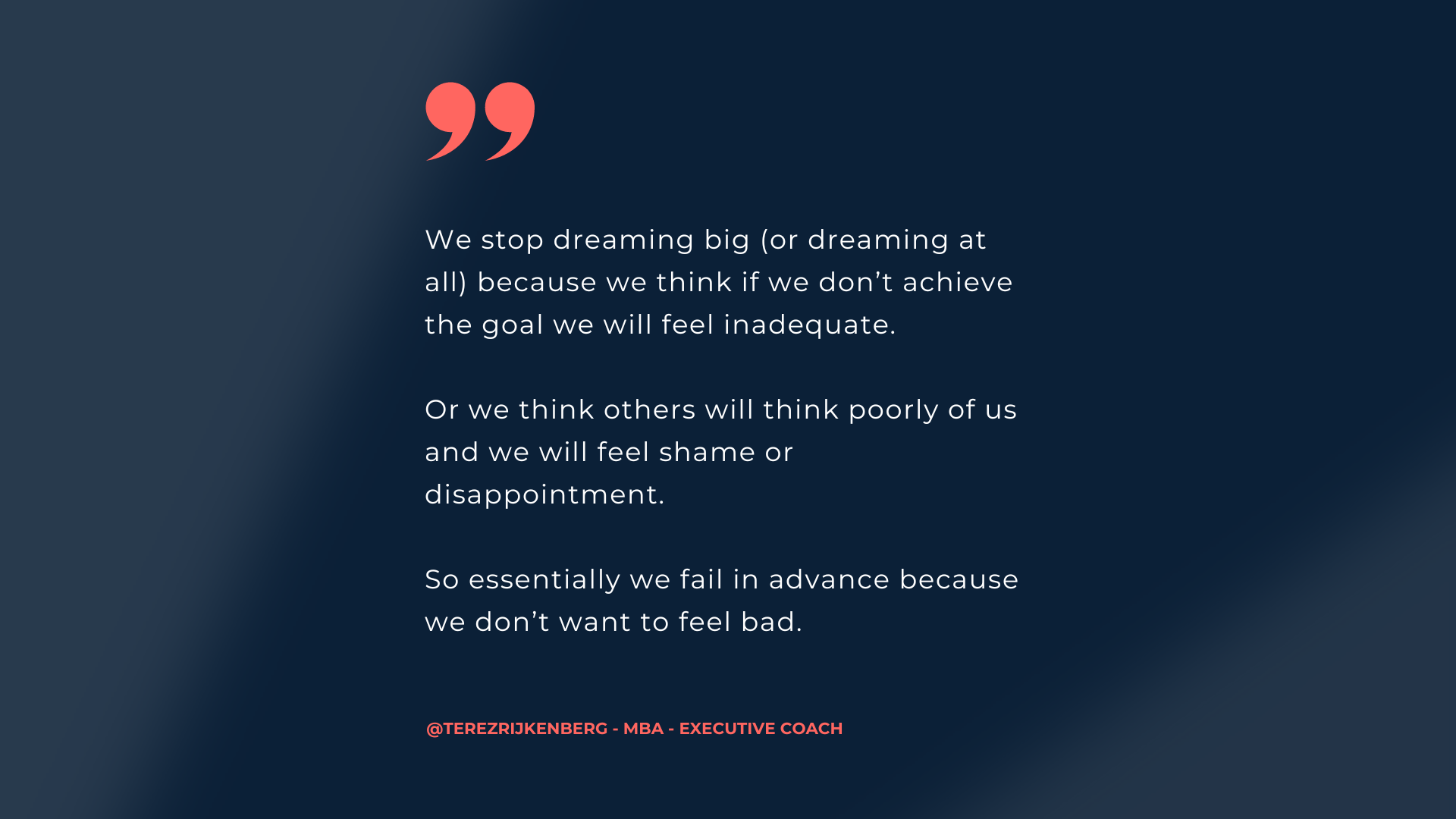<READING TIME: 5m24s>
The other day, in a coaching session, one of my clients said: “Last week was a complete write-off”.
I probed a bit and asked: “Tell me what happened?”
She replied, “Well I’d planned to spend 2 hours on strategic thinking time every day, but people kept distracting me every time I got into it!”
I probed a bit more “When did these people distract you?”
My client replied: “Well on Tuesday I was halfway through a strategic document and my colleague sent an email asking for my attention on something.”
She continued: “Then on Thursday I was almost finished with a board pack presentation when a phone call from the CEO came through. And on Friday there was a celebration in the office and I had to join in.”
I questioned a bit more: “So how many hours of strategic thinking time did you complete?”
My client: “Well I actually got through a lot of what I had planned to do and probably, looking at my calendar now, I managed 7 solid hours altogether.”
My response: “Oh… so your week wasn’t a complete write-off then?” 😂
This story isn’t here to shame my client. (I do the same thing all the time too – which is why I get coached at least twice a week.)
But I’m sharing the story with you because we all do this. Our mind exaggerates things.
It looks for patterns with events that happen and then exaggerates them. That’s just how it’s wired.
Why? Because patterns allow us to quickly and easily explain things.
This is the reason why we make assumptions, use stereotypes and also why we often create a lot of drama for ourselves!
You’ll notice the drama your mind creates if you’ve ever used “all or nothing” words like: “always” or “never” or “all” or “not” when explaining something.
Drama gets infiltrated into our language and thinking with other sensational words like “failure”, “complete”, “disaster”, “shocking”, disappointing”, “downhill” etc.
The problem with this kind of self-talk (and even when conveying messages to others) is that our brain starts to believe the drama as if it were true.
And then starts to focus on all of the evidence to prove it true.
AND – our brain then sabotages our actions to create even more evidence to make it true.
In the case of my client, when she was thinking her week was “a complete write-off” she felt frustrated, and she told me when she feels frustrated she becomes easily distracted and also didn’t plan for the upcoming week.
And so she effectively “writes off” the opportunity for strategic deep work in the upcoming week.
So what can we do instead?
First, notice if you are creating DRAMA for yourself by exaggerating how you feel, the actions you’re taking or the results you’re currently creating.
Then, stop to clarify the FACTS of the situation. Exactly how much, when, what happened, and what specifically did you do or not do? What is the clear data?
The facts and data are what could be proven in a court of law.
Then you can make a rational assessment about what’s working or not working.
Here are some more types of thoughts you can be aware of that create drama:
- “I didn’t manage to get anything done”
- “It was a disaster”
- “It’s a complete failure”
- “I always get it wrong”
- “I’ve never been able to do this”
- “It’s not working
TAKE ACTION:
- Think about the productive habits and results/tasks you want to achieve every week
- Where do you sometimes use “all or nothing” or exaggerate your thinking about it?
- Consider what the facts of the situation really are – what is the data? This may mean you need to go looking for the data in some way.
- For instance, check your calendar for actual hours spent on a specific task
- Make a rational decision about how to move forward with the data (and not the drama!)
- Be mindful of using dramatic language with your team and colleagues, asking yourself: “How might this dramatic language trigger them to react?”
- COACHING: If you would like to create more results and positive data at work (and a lot less drama), then book a free consultation with me here.





